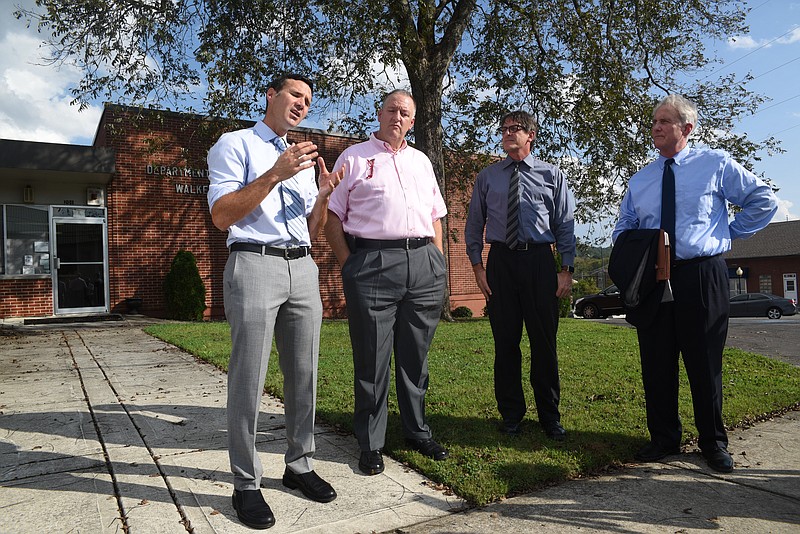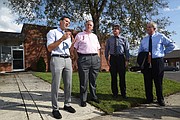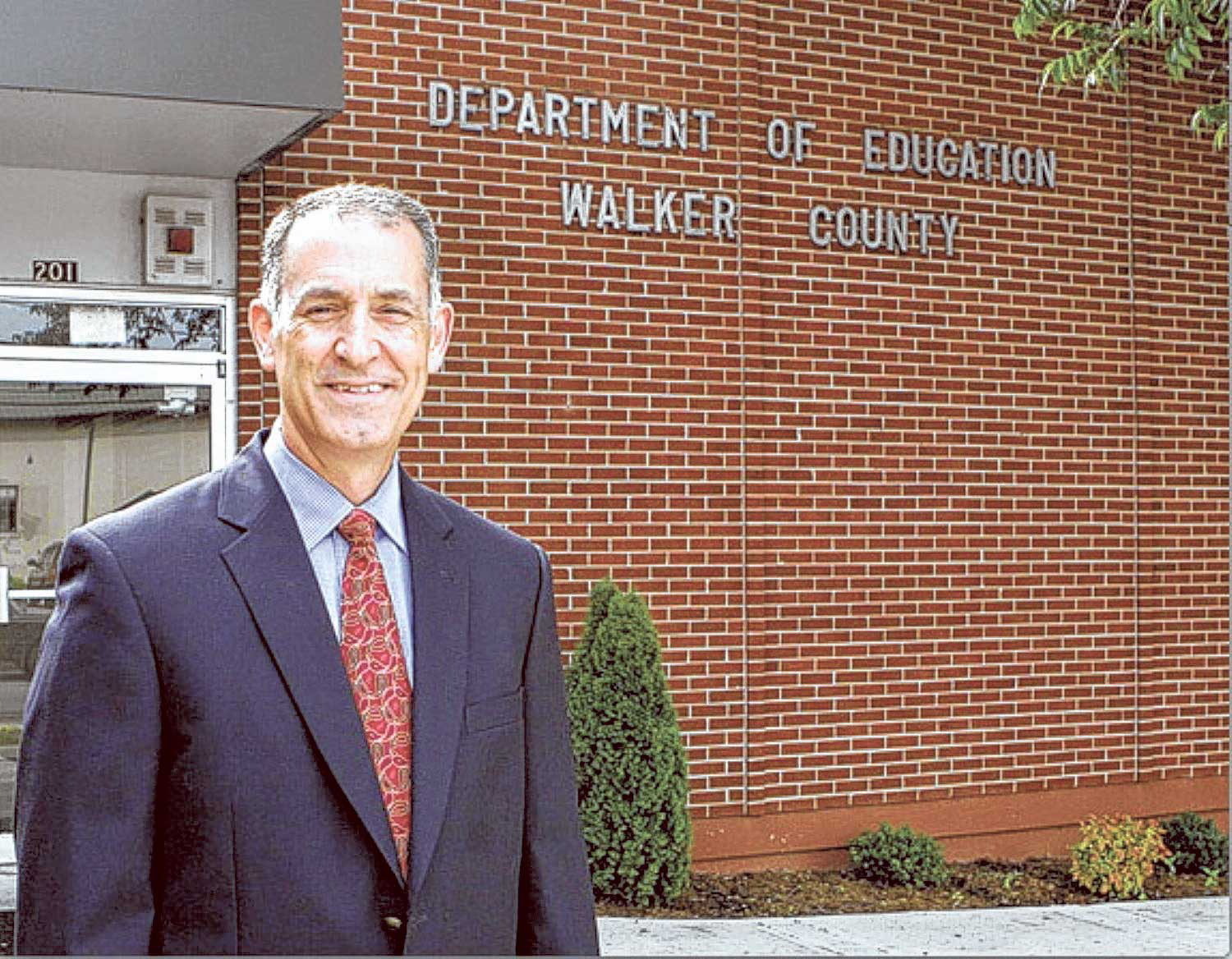UPDATE: In a statement Thursday night, Walker County Schools Superintendent Damon Raines pointed out that the department's insurance company paid for lawyers in this case. He also said the board's public comment policy has existed for about 30 years, and elements of the case are still pending in U.S. District Court.
"The Board may address the public comment policy once litigation has concluded," Raines wrote. "The Board is taking all steps it believes are in the best interest of the School System, the children of Walker County, and the citizens of Walker County regarding this issue."
ORIGINAL STORY: LaFAYETTE, Ga. - The Walker County School District unconstitutionally prevents people from speaking at public meetings, federal judges ruled last week.
U.S. Court of Appeals justices wrote Oct. 2 that the district's policy for commenting at school board meetings gives Superintendent Damon Raines "unbridled discretion to prohibit speech." In particular, potential speakers have to meet with Raines to tell him why they want to go before the board. The policy does not put a deadline on when Raines has to schedule that meeting - in theory, he could wait 100 years.
"Control the clock and control the game," Justice Robin Rosenbaum wrote, citing former North Carolina basketball coach Dean Smith, whose players often milked the clock by keeping the ball away from opponents.
Raines and School Board Chairman Dale Wilson did not return calls seeking comment Wednesday. Ronald Womack, the school district's lawyer, said the Times Free Press needed to discuss the ruling with another attorney, Randall Farmer.
Farmer could not be reached for comment early Wednesday evening.
Jim Barrett, an eighth-grade social studies teacher and the president of the Walker County Association of Educators, declined to comment when asked what he would like to see happen next. Barrett first sued the school district in March 2015.
"I'm going to let my attorneys handle where we go forward," he said Wednesday afternoon, during a news conference outside the district's central office on South Duke Street. "I'm very pleased with the outcome."
In January 2015, Barrett tried to complain to the school board about Raines' grading policy. Barrett believed the policy was too easy for students, giving them multiple chances to redo homework assignments and quizzes if they didn't like their grades. Barrett said some students didn't even study anymore.
As the district's policy required, according to the Court of Appeals, Barrett asked Raines on Jan. 20, 2015, if they could meet. Raines said he didn't have time until eight days later. After the meeting, Raines gave Barrett a written response on Feb. 9.
Later that day, Barrett wrote Raines a letter, formally asking to go before the school board. Raines responded Feb. 11. And by the time he responded, the next board meeting was six days away. As part of another element of the district's policy, Barrett had to receive approval at least one week before the board meeting. It was then too late. Raines told him he could speak at the next meeting, on March 10.
But by that point, Barrett had already met with lawyers.
In April 2016, U.S. District Court Judge Harold Murphy granted an injunction against the district's policy. Raines and the board appealed.
Last week, Justices Julie Carnes and Ronald Lee Gilman ruled along with Rosenbaum against the district.
One of Barrett's attorneys, Craig Goodmark, said the district can still appeal the ruling. Otherwise, the case goes back to Murphy in U.S. District Court to consider any lingering issues. But Goodmark said there are only two questions left. Will Murphy make the school district cover Barrett's legal fees? And will Murphy award Barrett money for damages he received because the district violated his First Amendment rights?
To fix the issue pointed out by the judges, the school board could tweak the policy. All they would need to do is place a deadline on how long Raines can meet with potential speakers. But Barrett's lawyers say the policy has other problems.
The justices criticized another part of the policy: Raines can reject speakers if they want to discuss certain issues. You can't complain about a school board employee. You can't discuss a topic that repeats several other speakers. And you can't talk about something that Raines believes is "abusive or disruptive."
Gerald Weber, a First Amendment lawyer who represented Barrett, said he wants the school district to adopt a simpler policy. He said meeting with Raines, letting him investigate your complaint, waiting for him to respond and then finally requesting to go before the board is too complex.
Weber said the board should let people speak if they simply show up to the meeting and write their names on a sign-up sheet.
"That's consistent with democracy," he said. "And that is the kind of policy that we think the Walker County School District should adopt: One that encourages citizens to participate; not one that creates hoops and hurdles to speaking their minds."
Contact Staff Writer Tyler Jett at 423-757-6476 or tjett@timesfreepress.com. Follow him on Twitter @LetsJett.


